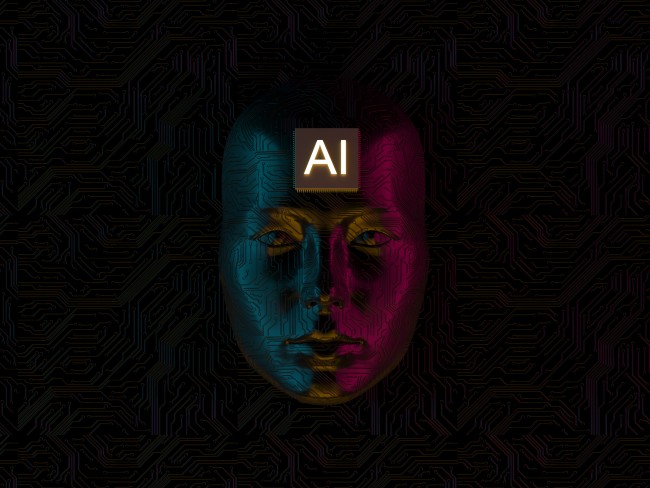
Money has never behaved this way before. It moves faster, thinks smarter, and decides quicker than any banker could. The financial world, once tied to vaults and signatures, now hums with algorithms and invisible code. Fintech was the first domino – Artificial Intelligence became the cascade.
Every transaction, every payment approval, every lending decision now passes through silent circuits of intelligence.
The shift isn’t about technology replacing humans; it’s about intelligence replacing guesswork. What’s emerging is not another wave of finance – it’s a new rhythm for how trust, value, and risk are measured.
The future of Fintech and AI will not simply automate; it will anticipate.
1. When Algorithms Became the Bankers
The financial ecosystem no longer sleeps. AI ensures it doesn’t need to. Machine learning reads trends faster than analysts, detecting fluctuations in consumer behavior before the next coffee break.
Behind each mobile banking tap lies a prediction – what the user might buy next, how much they’ll save, whether they’re likely to churn. Data becomes instinct.
Automated underwriting, smart wealth portfolios, and fraud alerts now function like invisible clerks, operating across continents without fatigue. The result is sharper accuracy, fewer human errors, and services that morph around customer behavior.
This is not technology performing a task; it’s technology forming judgment.
2. Banking Grows a Memory
The sterile banking model – identical services for everyone – has begun to fade. AI gave finance a memory. Each click, hesitation, or transaction leaves a trace that refines the next interaction.
Instead of “customer segments,” institutions now speak of “individual behavior models.” Algorithms predict what a user might require before they realize it themselves.
Imagine a bank that automatically extends credit before travel because it anticipates currency exchange needs. Or a digital assistant that rebalances an investment portfolio when markets twitch.
This isn’t personalization in theory – it’s emotion engineered through data. The bank starts behaving less like a corporation and more like a guardian of financial rhythm, tuned to personal tempo.
That emotional echo creates loyalty. Once trust fuses with convenience, customers rarely switch.
3. Invisible Battles: AI Against Financial Fraud

Every advancement creates its counterforce. As digital finance grows, cybercriminals evolve in parallel. Yet AI has quietly become the industry’s invisible armor.
No longer chained to static rulebooks, fraud detection systems now learn patterns dynamically. They sense deviation the way a human senses a lie – instinctively.
A sudden login from a new device, a purchase slightly outside spending rhythm, or a late-night transaction that feels off – AI flags it before a card is swiped twice.
Deep-learning models notice micro-patterns impossible for humans to see: typing rhythm, mouse speed, even subtle pauses during authentication.
Fraudsters adjust tactics constantly, but machines adjust faster. The future points to layered defenses where AI guards the frontlines and humans handle exceptions requiring nuance.
Trust, after all, is the most valuable currency. AI is its new custodian.
4. Credit Scoring Reinvented
For decades, access to credit depended on limited data – past loans, income statements, and paper trails. AI turned that model inside out.
Now, algorithms analyze unconventional signals – online purchasing behavior, social reliability, even mobile payment frequency – to paint an evolving picture of financial credibility.
This inclusivity redefines opportunity. Small business owners without formal credit history can access capital through AI-based risk evaluation. Micro-lenders in developing markets now distribute loans within minutes using predictive scoring models that grow smarter with every repayment.
The risk? Bias coded into algorithms. When datasets reflect historical inequalities, AI can replicate them. The next challenge isn’t just smarter scoring – it’s fair scoring.
Regulators will eventually demand transparency in automated decision-making. Fintechs that prepare early – building explainable and auditable models – will dominate the decade ahead.
5. The Investment Mirror: Predictive Finance
Investment no longer feels like a guessing game. AI has turned market watching into simulation. Predictive analytics process everything – macroeconomic events, sentiment shifts, even sudden global tweets – and recalibrate portfolios on the fly.
Robo-advisors now handle complex diversification strategies once reserved for elite clients. A small investor with a smartphone accesses the same analytical power as a Wall Street desk.
AI systems don’t sleep during volatility. They read thousands of signals per second, rebalancing assets at speeds impossible for human traders.
This democratization of intelligence narrows the wealth gap between institutional and retail investors. Yet it also poses a paradox – when every player reacts to the same predictions, unpredictability becomes the new market edge.
The human element – intuition, restraint, patience – might soon be finance’s rarest commodity.
6. Compliance Learns to Think
In the old system, compliance teams swam through endless paperwork – verifying transactions, checking regulations, chasing signatures. AI sliced through that fog.
RegTech solutions now scan every transaction in real time, cross-checking them against global regulatory frameworks. Natural language processing extracts legal intent from thousands of pages of policy and compares it to company data within seconds.
What was once reactive has become predictive. Systems now warn before a rule is breached. The margin of error shrinks, efficiency soars, and fines disappear into history.
This automation also introduces ethical depth. Regulators must now verify how AI makes compliance decisions. In tomorrow’s financial infrastructure, transparency will not be optional – it will be legislated.
7. Blockchain and AI: The Alliance of Trust

Blockchain secures data; AI interprets it. Their convergence could redefine how money moves and agreements execute.
A smart contract can automatically release funds once an AI validates required conditions. Insurance claims, trade settlements, or even royalty payments could complete without human touch – error-free and immutable.
Decentralized systems combined with machine reasoning bring both trust and intelligence. While blockchain removes the need for middlemen, AI ensures those transactions remain context-aware.
The next decade will likely see hybrid ecosystems where AI decisions are logged transparently on blockchain records – eliminating disputes and creating audit-proof finance.
Where the traditional ledger once sat silent, a talking ledger now learns, reasons, and adapts.
8. The Human Shift: From Execution to Oversight
Automation often triggers fear – loss of control, job displacement. Yet in fintech, it creates new hierarchies. Repetitive roles fade, replaced by analytical and strategic positions.
Financial professionals transition from number crunchers to interpreters of machine logic. Understanding why an algorithm acted becomes more important than what it produced.
Cross-disciplinary skills – data ethics, computational finance, behavioral design – emerge as new specializations. The best minds will not compete against AI but alongside it, steering precision toward purpose.
The new economy rewards curiosity over compliance, adaptability over routine. Machines handle velocity; humans handle vision.
9. Guardrails for the Intelligent Economy
Power always tempts misuse. With great data comes greater responsibility. Fintech powered by AI faces a moral crossroad: progress versus privacy.
Financial models can predict personal spending, debt risk, even life expectancy. Such insight must be handled with restraint. The ethical future of finance will depend on transparency – how data is gathered, stored, and reasoned with.
Explainable AI will become a non-negotiable standard. Decisions affecting credit, insurance, or employment must reveal their logic when questioned. Black-box systems will fade under public and regulatory pressure.
The companies that intertwine ethics into code – not just compliance – will shape trust in digital finance.
Conclusion
The partnership between Fintech and Artificial Intelligence is not a forecast – it’s the present accelerating into tomorrow. From automated credit engines to predictive wealth systems, every thread of finance is now coded with intelligence.
What lies ahead is a financial world that doesn’t merely react but senses – learning from emotion, pattern, and context. Banks will look less like vaults and more like neural networks humming with adaptive logic.
Still, technology alone will not define the next era – responsibility will. Those who wield AI with clarity, empathy, and transparency will shape an economic system that is not only smarter but more human at its core.
The future of fintech and AI is already running – quietly, continuously, invisibly – just beneath the world’s next transaction.
Also Read:

